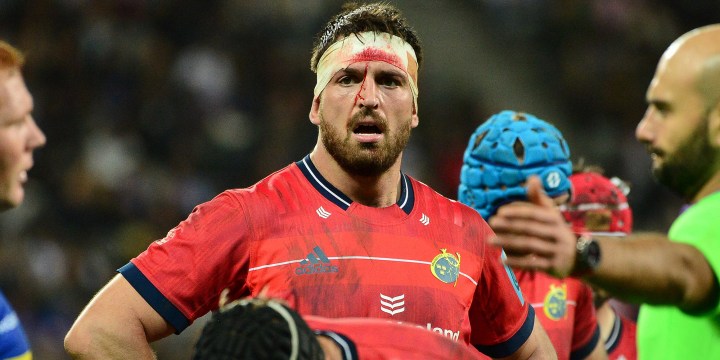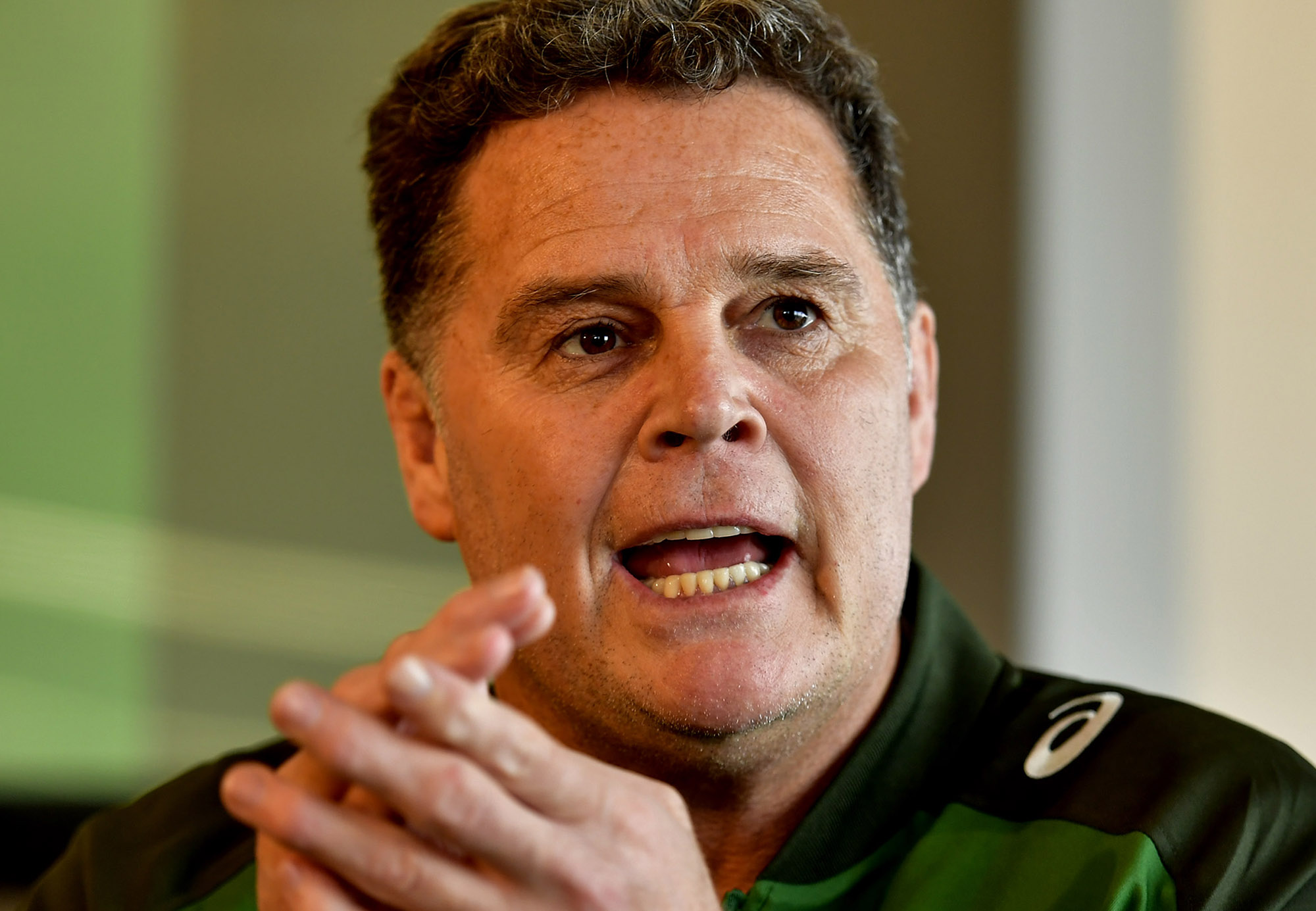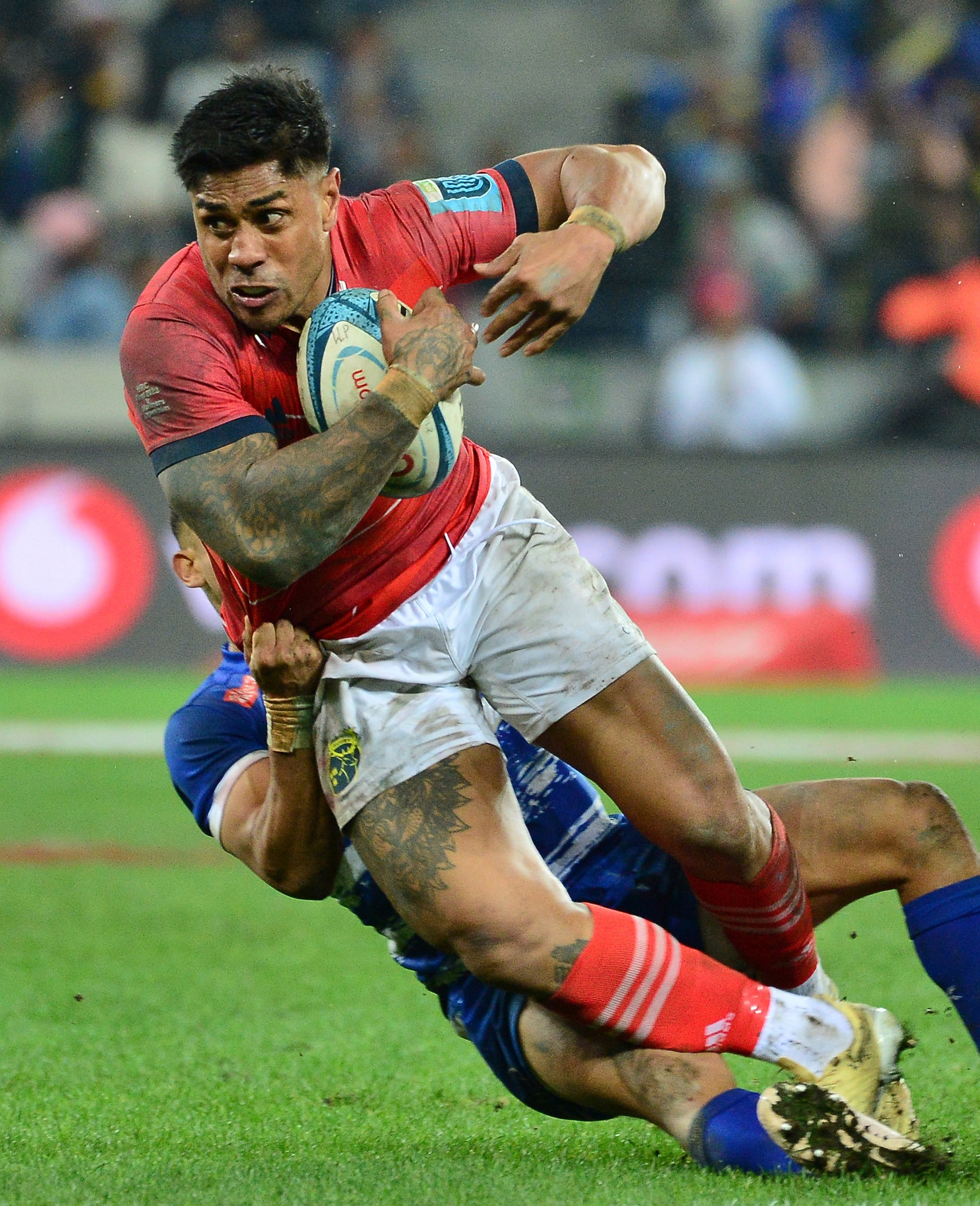RUGBY
Jean Kleyn cleared for Bok debut after change in eligibility laws that mostly benefit Pacific Islands

It seems increasingly likely that Munster lock Jean Kleyn – capped five times by Ireland – is set to make his Springbok debut during the Rugby Championship next month after he was cleared to represent the country of his birth.
A change to rugby’s eligibility laws in late 2021, which South Africa ironically opposed, has cleared the way for the Springboks to solve a potential lock dilemma in the short term.
Jean Kleyn, the Linden Hoërskool product who played for Western Province and the Stormers between 2014 and 2016, is set to make a Bok debut he must have thought would never come.
When Kleyn took up a club contract with Munster in Ireland in July 2016, his Bok chances diminished but still flickered because the South African Rugby Union (Saru) did allow for the selection of overseas-based players.
But the Bok call never came and by mid-2019, as an established Munster man, Kleyn became eligible for Ireland after four years in that country. He was called up to the national squad of his adopted country and made his debut against Italy. He later made the cut for Ireland’s 2019 Rugby World Cup (RWC) squad.
And that should’ve been that. But a change in World Rugby’s eligibility regulations in 2021, which was implemented in 2022, opened the door for Kleyn and a host of other players to return to play for the country of their birth or heritage.
On 1 January 2022, the amended regulation came into effect. It stated: “In order to transfer from one union to another under the revised Regulation 8 (eligibility), a player will need to meet the below criteria:
- The player must stand down from international rugby for 36 months;
- The player must either be born in the country to which they wish to transfer or have a parent or grandparent born in that country; and
- Under the revised Regulation 8 criteria, a player may only change union once, and each case will be subject to approval by the World Rugby Regulations Committee to preserve integrity.”
Kleyn has not played for Ireland since RWC 2019, was born in South Africa and has South African parents. He qualified on all counts.
There is a certain irony, of course. Saru opposed the change in regulation, which director of rugby Rassie Erasmus conceded at a recent media gathering.
“Our selection committee has been monitoring players for a long time. When Regulation 8 was changed, we had a chance to give input, and we actually voted against that. And then World Rugby decided that you can change the national team that you play for,” Erasmus said.
“So, immediately when we saw that, we put a guy like Jean Kleyn on our radar, and we started monitoring him as well. He was a player who was available.”

Rassie Erasmus (SA Rugby Director of Rugby) during the South Africa men’s national rugby team media briefing at Saru House on 25 May 2023 in Cape Town, South Africa. (Photo: Ashley Vlotman / Gallo Images)
Using the loophole
It’s a case of, “if you can’t beat ’em, join ’em” for South Africa, in this instance.
However, it’s unlikely that many South Africans, who have been capped by other countries, will suddenly be returning en masse, but it does show that the regulations can be used by everybody.
South Africa, along with the Polynesian countries of Tonga, Samoa and Fiji, are the largest net exporters of rugby talent. Numerous players who come from these four countries have played Test rugby for other nations.
For those who feel the nationalistic or ancestral pull of wearing the colours of their country of birth, or that of their forefathers, in the international arena, this is a reprieve.
At the time of the regulation amendment, World Rugby stated it was about implementing “progressive change” to recognise “the modern professional rugby environment”.
Talented players, with few future financial prospects as professionals in their home countries – and who chose more lucrative club contracts in Europe to provide for their families, and who then went on to play Test rugby for their adopted country – now have a chance to fulfil childhood dreams.
The amendment particularly benefits the Pacific Island nations, when one considers that high-quality former All Blacks and Wallabies will be turning out for Samoa and Tonga at Rugby World Cup 2023.
Players with Tongan heritage such as fullback Israel Folau, centre Malakai Fekitoa and fullback Charles Piutau, who started for the Wallabies and All Blacks in the past, should be in France wearing the red of Tonga.
Samoa have already named three former All Blacks – prop Charlie Faumuina, loose-forward Steven Luatua and flyhalf Lima Sopoaga – in their World Cup training squad. They have also added former Wallaby utility back, Christian Leali’ifano.

Malakai Fekitoa of Munster during the United Rugby Championship final match between DHL Stormers and Munster at DHL Stadium on 27 May 2023 in Cape Town, South Africa. (Photo: Grant Pitcher / Gallo Images)
Unintended consequences
It will certainly make for a more interesting World Cup with the Pacific Island nations being bolstered by the amendment, although the regulation could have some unintended consequences.
Because of the heritage clause, many Pacific Island players, who have spent their entire lives in New Zealand or Australia, and benefited from strong rugby systems in those countries, can effectively be produced for the benefit of Tonga, Fiji and Samoa.
In most cases, Pacific Island nations are not using returning players, but gaining players raised and developed in a different system. It’s a subtle but significant difference to Kleyn.
The 2-metre lock was schooled in South Africa, did his tertiary education at Stellenbosch and spent three years playing professionally for WP and the Stormers, with dreams of one day playing for the Boks. His time at Munster might have polished him as a player, but the major part of his development was done in the country of his birth.
Fekitoa was offered a scholarship at one of New Zealand’s top rugby schools, Wesley College, after a Tongan schools tour. Those tours and scouting the Pacific Islands have long been a recruitment tool for New Zealand.
Others such as Piutau were born and raised in New Zealand. He had not played a Test for the All Blacks in seven years when he turned out for Tonga in 2022. He has heritage and therefore a claim, but Tongan rugby played no part in developing Piutau as a player.
Of course, primarily New Zealand and latterly Australia have exploited Pacific Island talent for the benefit of the All Blacks and Wallabies. This could be viewed as a welcome role reversal. Not many in rugby have sympathy for New Zealand in this situation.
It could have some long-term consequences though. How much time and money will New Zealand keep on investing in players of Polynesian descent if they change allegiance for the second half of their professional careers?
The reality, though, is that in one instance, the Boks are benefiting from the change in regulations, while Samoa and Tonga, in particular, are the true beneficiaries. DM




















Comments - Please login in order to comment.